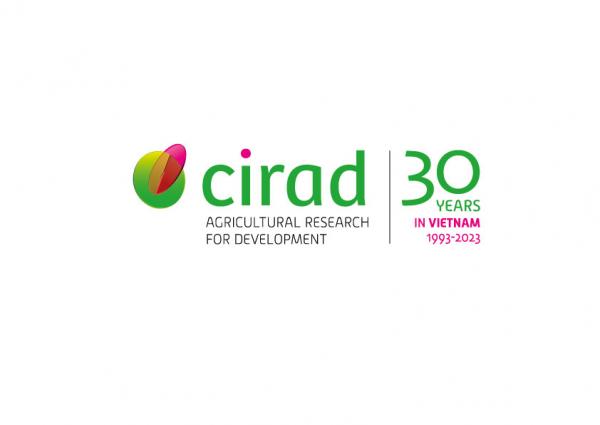
CIRAD in Vietnam: 30 years of partnership
From 25 to 29 September, a packed programme of events is planned to mark CIRAD's 30 years in Vietnam.

The region's value chains and environments are changing rapidly, to satisfy its fast-growing urban population and produce goods for export. Its countries are working to boost both quantity and quality (particularly sanitary quality), prompted by the emergence of a more demanding middle class. This has triggered growing pressure on livestock production systems and on animal health, driven by exponential market growth (China) and the need to manage emerging diseases of zoonotic origin. The region has substantial innovation capacity: its public and private R&D sector is highly dynamic, with rapid uptake of innovations on the part of economic players.
Southeast Asia is one of the richest regions in the world in terms of endemic plant and animal species. It also has major linguistic diversity, and is a major hub for the domestication of plant and animal varieties. Southeast Asia is also a global hotspot in terms of threatened biodiversity and cultural diversity. Numerous zoonoses have emerged in the region (including Southeast China) in recent decades, and the development of economic corridors and their integration into the new Silk Roads have brought major cross-border health risks. The Covid-19 pandemic has highlighted the failure of current zoonotic epidemic forecasting strategies. The One Health approach championed by CIRAD and its partners, notably within the Emerging Diseases in Southeast Asia platform in partnership for research and training (dP GREASE), is intended to build the skills of professionals and policymakers in terms of understanding how diseases and health crises emerge, and to provide the various stakeholders with tools to change the social, environmental and economic situation in the region, to reduce the adverse effects on public health in general and human health in particular.

From 25 to 29 September, a packed programme of events is planned to mark CIRAD's 30 years in Vietnam.
The dots show the countries in which CIRAD and its partners work. They do not show specific sites.
CIRAD works with higher education organizations in the region to organize, lead and supervise diploma and vocational training, PhD schools workshops, courses, study trips and internships. It supervises a number of PhD and Masters students from across Asia each year. In terms of ongoing vocational training, CIRAD organizes short and medium-length internships and courses for students from Myanmar, Cambodia, Laos, Thailand and Vietnam in host laboratories in the global North.
Franco-Thai international Masters: InterRisk - Assessment and management of health risks at the human, animal and ecosystem interface
Within the framework of the One Health approach, this Masters is led by CIRAD in association with Kasetsart University (Thailand). It is supported by MUSE (Montpellier University of Excellence), and will shortly involve other partners, notably the École Inter-États des Sciences et Médecine Vétérinaires de Dakar at Cheikh-Anta-Diop University (Senegal).
Masters from the University of Science and Technology of Hanoi (USTH)
CIRAD is involved in several Masters in the fields of plant biotechnology, renewable energy, water-environment, information science and technology, computer science, etc.
CIRAD Regional Office for Continental Southeast Asia
CIRAD, Bureau 102, Batiment 2G
Cité Diplomatique de Van Phuc, 298 Kim Ma, Hanoi,
Vietnam
Tel.: + 844 37 34 67 75
Mobile: + 849 14 30 99 91
Fax: + 844 37 34 67 83